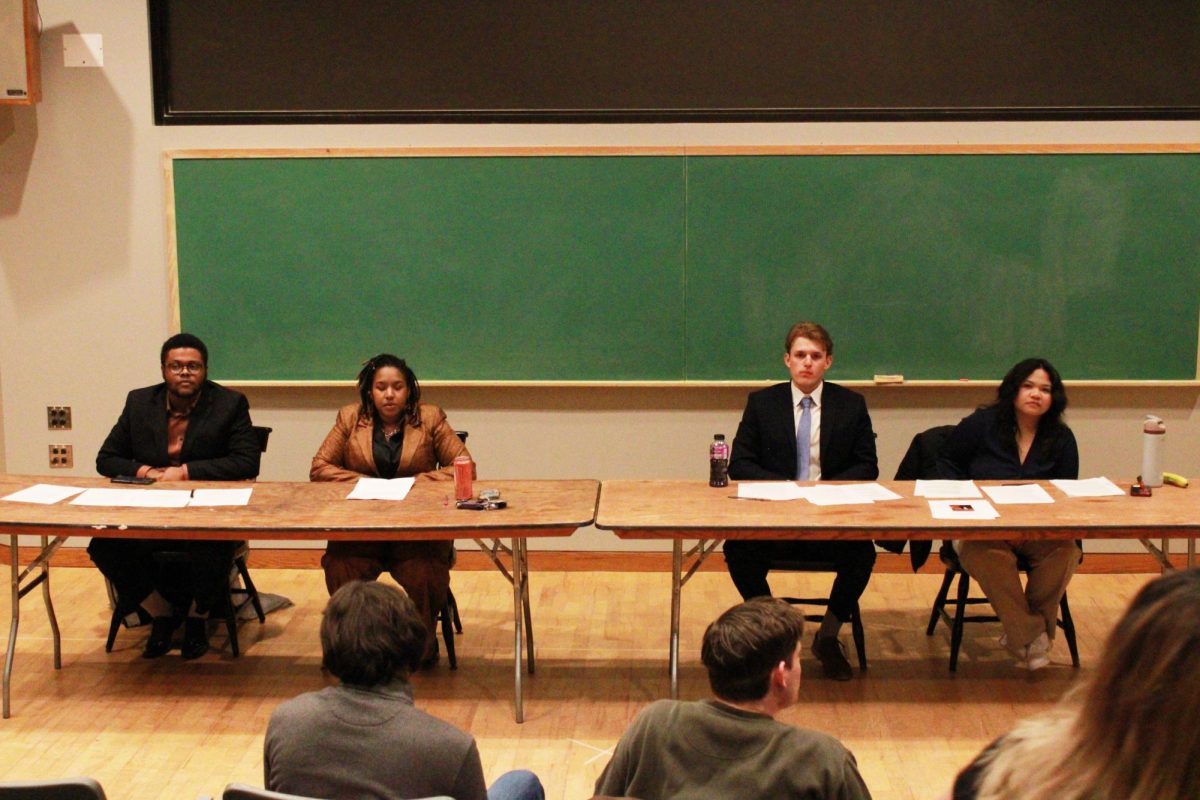By BRIANA ENGLISH
englisb@allegheny.edu
Recent studies by the University of California economics professors Philip Babcock and Mindy Marks call attention to the fact that undergraduates these days are studying significantly less than those of the past. Allegheny students, however, seem to have more of an issue of efficiency in study habits rather than a dwindling amount of time spent studying overall.
Visiting Assistant Professor of English Jeremy Wells doesn’t attribute a lesser amount of time spent studying to a negative attitude about learning among students at Allegheny. Instead he sees in his students a desire to learn. He has been impressed with the work ethic among his students at Allegheny.
“There’s an earnestness that I’ve noticed here that’s wonderful,” said Wells. “It’s the rare student who’s disengaged. The majority are very much engaged and interested in things other than getting the grade.”
Lynn Zlotkowski, the assistant director of the Learning Commons, says that even the best students could improve the efficiency of their study habits.
“I think a lot of Allegheny students want to study but never really learned how to study before they came here.” said Zlotkowski. “Many of our students could use a little more help when it comes to learning how to study correctly.”
Diane Nutbrown, a professor in the chemistry department, says the college experience is a “different demographic” within which students must modify old study habits. Students who were at the top of the class in high school are now placed with many other students of similar backgrounds and must adjust their study habits accordingly. She says that students understand they need to manage their time but perhaps need more modeling or guidance as to how to spend it.
“Part of the issue might be the effectiveness of studying… it might be qualitative not quantitative,” said Nutbrown. “It’s difficult to develop study habits if you haven’t had them.”
Aside from studying habits themselves, technology also plays a role in how students study and is some cases reduces the efficiency of time spent studying.
“The biggest thing is technology,” Zlotkowski said. “It’s trying to convince students to shut their computers off when they’re studying.”
Technology hurts students who are attempting to study but end up on Facebook or watching YouTube videos instead, she said. Being on the internet when they should be studying can turn a two-hour paper into a six-hour paper and can cause students to have trouble getting back into their work.
Anulehka Venkatram,’13, agrees that technology can reduce the effectiveness of studying.
“I know if I want to study I usually try to study away from my room or my computer so I don’t get distracted by them,” said Venkatram. “But if people are around their computers more I do think there is a tendency to focus less on work and more on websites where they can just fool around.”
Wells said there is now more technology available than when he was a student, but doesn’t feel that technology is behind the changes in student study habits. There wasn’t e-mail or the Web to distract him as an undergraduate, but he had things like ESPN.
Nutbrown agrees, saying that technology doesn’t necessarily provide more distractions, it just provides different ones, noting socializing during her college years as a distraction not unlike technology is for students today.
Madeline Rumbaugh,’13, doesn’t see technology as a huge problem either.
“It’s just about balancing what you’re doing.” said Rumbaugh. “There’s always some quiet place to study so as long as you can find a place that works for you.”
She feels it should be an individual choice to decide whether they need to remove themselves from technology while they study.
“If you can concentrate on what you’re doing you can still have it around you,” she said “Some people work better listening to music…It’s kind of up to the person what they think is best.”
Nutbrown added she has noticed that some students, although only a small portion, are not taking the time to study in a way that will prepare them for the future.
“They think they can Google any question and get the answer,” Nutbrown said. “This prohibits people from reasoning and learning, which will give them the skills they need to use their own instinct when searching for on the job answers that can’t be found with the click of a button.”
Instead of learning, students may be more concerned about grades, Zlotkowski added.
“They focus way more on what I need to get to do to get an A, rather than learning the material,” she said.








